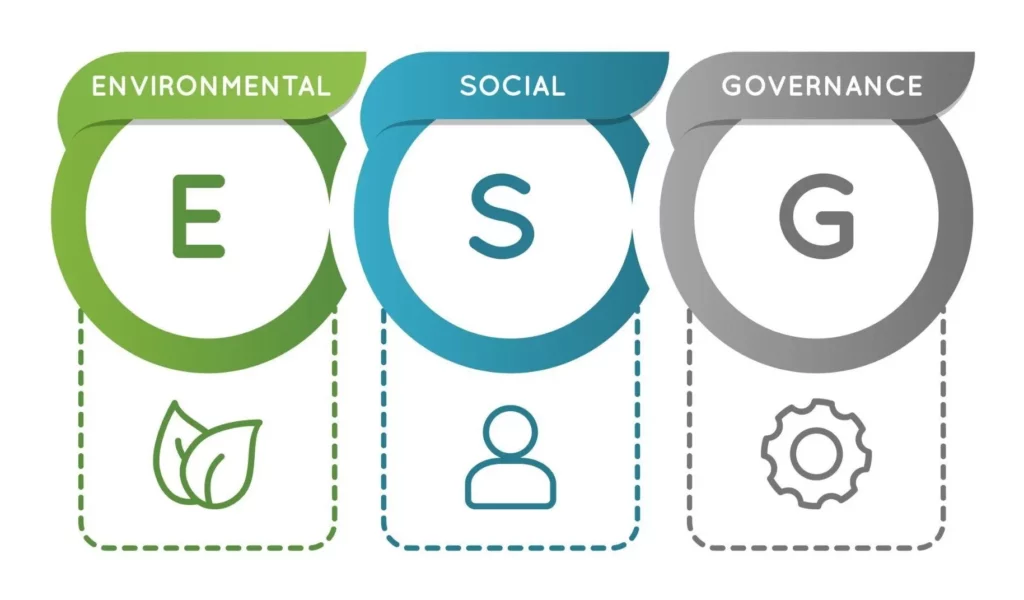As the world becomes increasingly interconnected, it is becoming more important for investors to consider not only financial data but also environmental, social, and governance (ESG) criteria when making decisions about their investments. This blog post will explore what ESG criteria is, why it is important to investors, the types of data it involves, and how to analyze this information. By understanding ESG meaning criteria and how to assess it properly, investors can make better-informed decisions that take into account long-term risks while at the same time promoting positive change in the economy, society, and environment.
Environmental, social, and governance (ESG) criteria is quickly becoming an important consideration for investors. ESG stands for Environment, Social, and Governance, and it is a comprehensive set of criteria used to evaluate the sustainability and socially responsible behavior of organizations. It assesses companies based on their performance in areas such as climate change, human rights, corporate governance, labor standards, and environmental protection.
By understanding ESG criteria, investors can make more informed decisions that take into account long-term risks while at the same time promoting positive change in the economy, society, and environment. As more investors are looking for ways to align their investments with their values, ESG data is becoming increasingly important. The ESG methodology can also help identify potential risks in an organization’s operations that could adversely affect its financial performance.
ESG data provides insight into how a company is managing its operations and addressing issues that may have an effect on its long-term prospects. This type of data includes information on corporate governance structures such as board independence policies; environmental concerns like pollution levels or energy efficiency; social issues such as employee safety or health care benefits; and other factors related to ethical business practices. By analyzing this data carefully, investors can gain a better understanding of how organizations are performing across these different categories of ESG meaning– making it easier to make wise investment decisions that benefit both people and the planet.

Why is ESG Important?
As investors search for ways to maximize their returns, ESG criteria provide a valuable tool for assessing the long-term risks and opportunities associated with investments. By considering the environmental, social, and governance practices of companies, investors can gain greater insight into how those organizations are managing various issues that may have an effect on their performance. Moreover, analyzing these factors helps identify those companies that have strong sustainability practices compared to those that do not. Ultimately, this allows investors to make more informed decisions about where they should place their capital while helping promote positive changes in the economy, society, and environment.
Types of ESG Data
The data used to assess a company’s sustainability through ESG criteria falls into three main categories: environmental, social, and governance. Environmental data is related to the impact of the company on the environment, such as its energy use and emissions. Social data is related to the impact of the company on society, such as its labor practices, supply chain management and human rights record. Governance data assesses how a company is being managed, including its executive pay structure and board diversity.
ESG data can come from various sources, such as company reports, surveys, interviews with stakeholders, public databases, and more. For example, companies must disclose their emissions in accordance with national regulations, while non-financial disclosures are now mandatory in many countries for publicly listed companies. This information can be used by investors to assess whether companies are taking steps toward reducing their environmental impacts or addressing social issues in their operations.
Common types of ESG include climate change-related metrics (such as carbon intensity or renewable energy use), labor standards (such as job safety or employee turnover rate), corporate governance (such as board composition), and human rights (such as workplace diversity). Advanced analytics tools are also available that allow investors to analyze ESG performance using visualizations like heat maps and scatter plots. Additionally, investors can now benchmark ESG performance across multiple companies within an industry or region to identify best practices that they can leverage in their own investments.
By understanding the different types of ESG data available and how it can be used to assess a company’s sustainability performance, investors can make informed decisions about where they should place their capital while promoting positive change in the economy, society, and environment at the same time.

How to Analyze ESG Data
Analyzing ESG data is an important part of understanding a company’s sustainability and potential for growth. There are various sources of ESG data available to investors, such as company reports, investor documents, and database providers. It is important to assess the accuracy and reliability of these sources in order to ensure the quality of analysis.
When comparing different sources of ESG data, investors should look for consistency in terms of indicators used and the scoring methodologies employed. This helps create a more comprehensive view of a company’s ESG performance by looking at issues from multiple angles. Investors can then use this data to draw meaningful conclusions about the company’s performance and outlook.
Advanced analytics tools can be used to help analyze ESG meaning data more effectively. These tools provide investors with powerful insights into how companies are managing various issues that may have an effect on their long-term prospects and allow them to better understand the risks associated with investing in certain companies. Such analytics can also be used to compare a company’s ESG performance against its peers or the industry average in order to identify areas for improvement or opportunities for growth.
Finally, it is important for investors to remain mindful of current events when analyzing ESG data as changes in government policy or global trends can have significant implications on a company’s performance and outlook. By remaining up-to-date with industry developments, investors will be better equipped to make informed decisions about their investments while promoting positive change in the economy, society, and environment.
In conclusion, ESG meaning criteria are quickly becoming an important and integral part of investment decisions. By utilizing the available data effectively businesses, investors and society as a whole can benefit from increased financial returns while also making positive changes in their respective fields. Furthermore, understanding and incorporating ESG principles into decision-making processes will help to reduce long-term risks associated with climate change or poor corporate governance. It is therefore essential that all parties become aware of the importance of ESG criteria in order to ensure success for themselves and promote positive change throughout society.
















